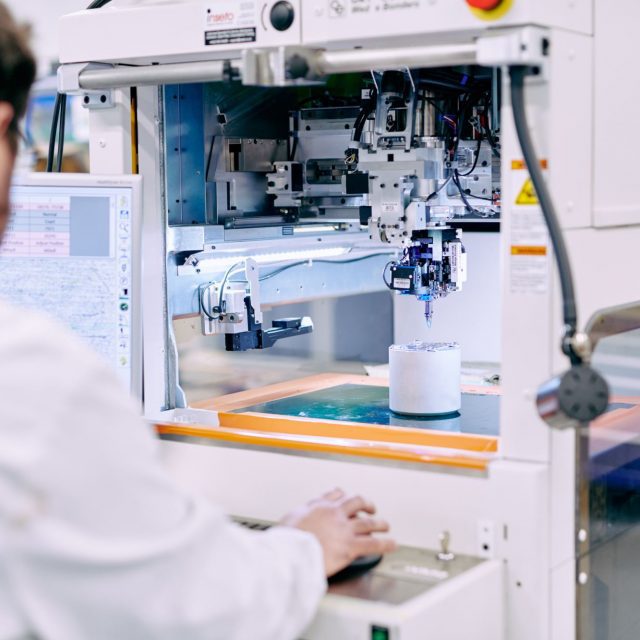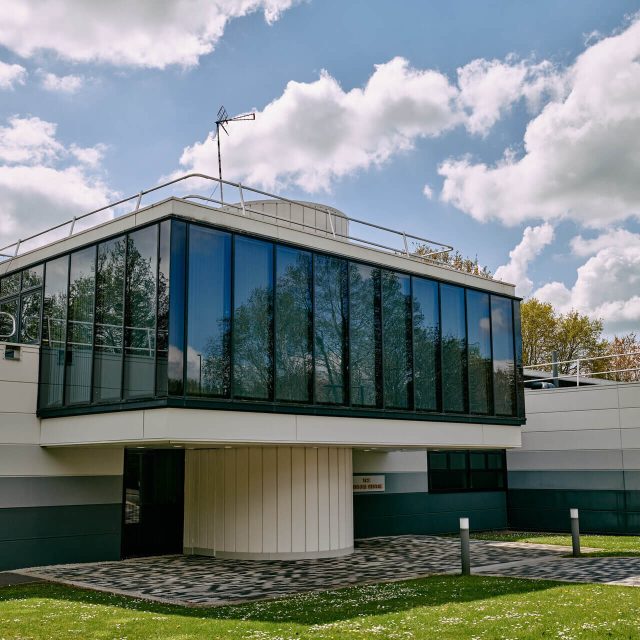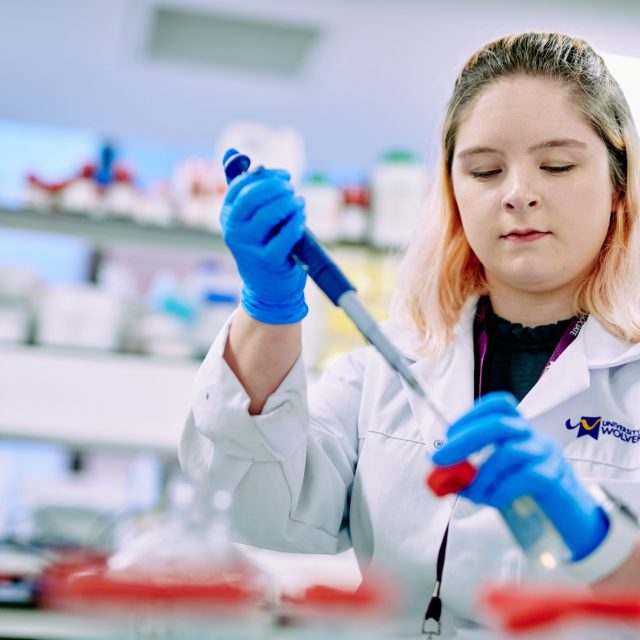Life Science in the West Midlands: Where Innovation Meets Opportunity

In the West Midlands,
Ideas Move Fast
The region is purpose-built to shorten the journey from discovery to delivery.
- Clinical trials, on tap: With NHS Trusts, which include the Queen Elizabeth Hospital and University Hospitals Coventry & Warwickshire, researchers can connect with patients and clinicians.
- Specialist testbeds: From MedTech to digital health, innovations are trialled in real-world environments, so they’re ready for market quicker. We are the first multi-city 5G testbed – which is key to delivering the remote 5G health services that will define the next decade.
- Manufacturing muscle: Backed by supply chains in engineering and advanced manufacturing, prototypes quickly become scalable products.
And it’s not just theory. Nonacus, a Birmingham-based medical geonomics company, developed the GALEAS™ Bladder, a non-invasive test to detect bladder cancer. By locating at the BioHub Birmingham, Nonacus accessed desk and lab space, kept costs down and started at a manageable scale for a new startup. It helped them set up and gave them a launchpad from which to reach the success they’ve seen since. Nonacus built vital partnerships with research colleagues and practitioners which accelerated their product development, and today, Nonacus supplies its technology to more than 30 countries.
At the heart of the West Midlands’ life sciences ecosystem is the Birmingham Knowledge Quarter (B-KQ). The life science-focused site within the West Midlands Investment Zone offers tax incentives, clustered R&D, and a pipeline of major developments like the Birmingham Health Innovation Campus.
It’s a place that de-risks investment. It’s the infrastructure, the partnerships, and the government support needed to let new companies run at the speed their ambition demands.
And it’s affordable, dense, connected. Access to clinical sites, universities, and advanced manufacturing, all within one region.
In the West Midlands, life-changing science is part of our DNA. The West Midlands Growth Plan marked it as one of eight core sectors that drive the economy. It’s a clear signal that we’re going to continue making breakthroughs, growing the economy, and supporting companies that change the world.
Here, the next generation of disruptors isn’t just supported – they’re empowered to lead.
It’s where academia and industry seamlessly connect. It’s a place where big dreams meet bigger possibilities and make the breakthroughs that change lives.
Gino Martini is one such leader driving forward collaboration through the PHTA.
Universities: Catalysts for Innovation
Collaboration is not an afterthought in the West Midlands – it starts here, and it drives results.
The Precision Health Technologies Accelerator (PHTA) at the University of Birmingham is a hub where scientists, clinicians, and entrepreneurs work side by side. As Gino Martini, Chief Executive of PHTA, put it:
We provide collaboration space, wet labs for experimenting… Experts are on hand due to our proximity to the university and medical school – we really want to create an environment that brings people with different backgrounds together, and allows conversations about new ideas to flourish.
The University of Warwick links biomedical engineering research with global OEMs, turning innovations into practical applications.
Meanwhile, the University of Birmingham is at the forefront of gene therapy research into joint and chronic pain treatments that avoid the side effects of current therapies. Collaborative research through the Birmingham Biomedical Research Centre has initiated nearly 1,000 clinical trials, accelerating the development of safer, more effective treatments for patients.
These partnerships show how international investors can join a thriving ecosystem, instead of building in isolation. From lab to market, the West Midlands universities accelerate innovation, foster collaboration, and keep talent and ideas flowing locally.
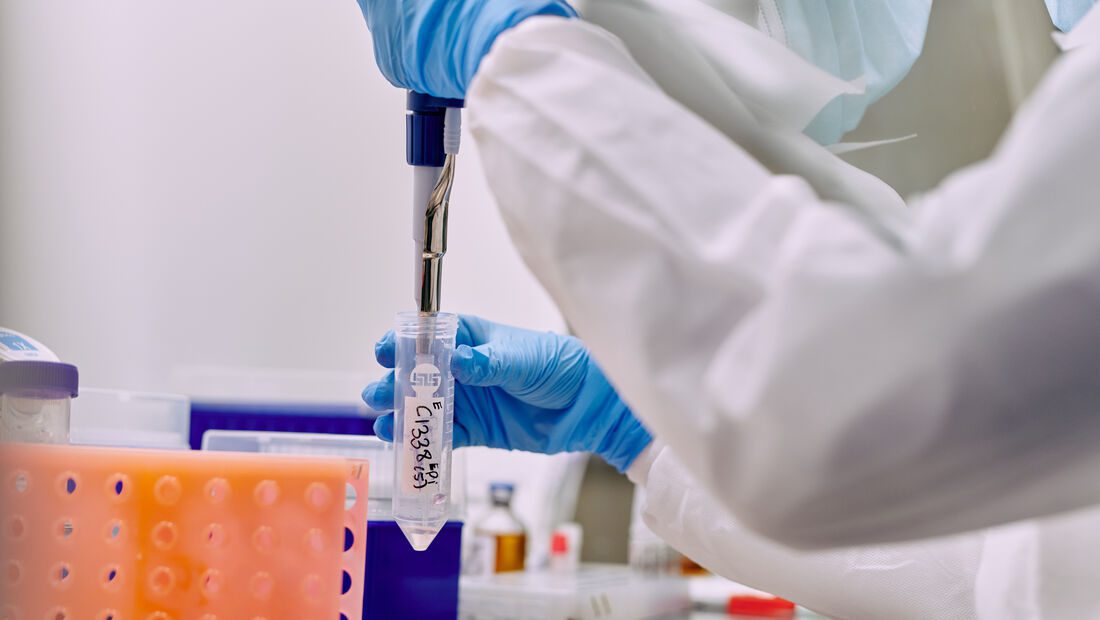
Talented and Young
The West Midlands is young, diverse, and skilled.
Around 30,000 STEM graduates every year feed into the region’s fast-growing sector.
And crucially, they stay. 72% of Birmingham graduates choose to live and work locally, ensuring companies have access to talent that’s not just highly trained, but rooted in the region.

Life Science Week
In a collaborative ecosystem like ours, networking and communication are the driving forces behind partnerships and innovation.
This year, Birmingham’s inaugural Life Science Week took place. The event brought researchers, clinicians, and industry leaders together. It also saw the launch of the Birmingham Health Innovation Campus, a core pillar of the local life sciences ecosystem.
It’s more than an event; it’s a showcase of how collaboration drives innovation in the West Midlands.
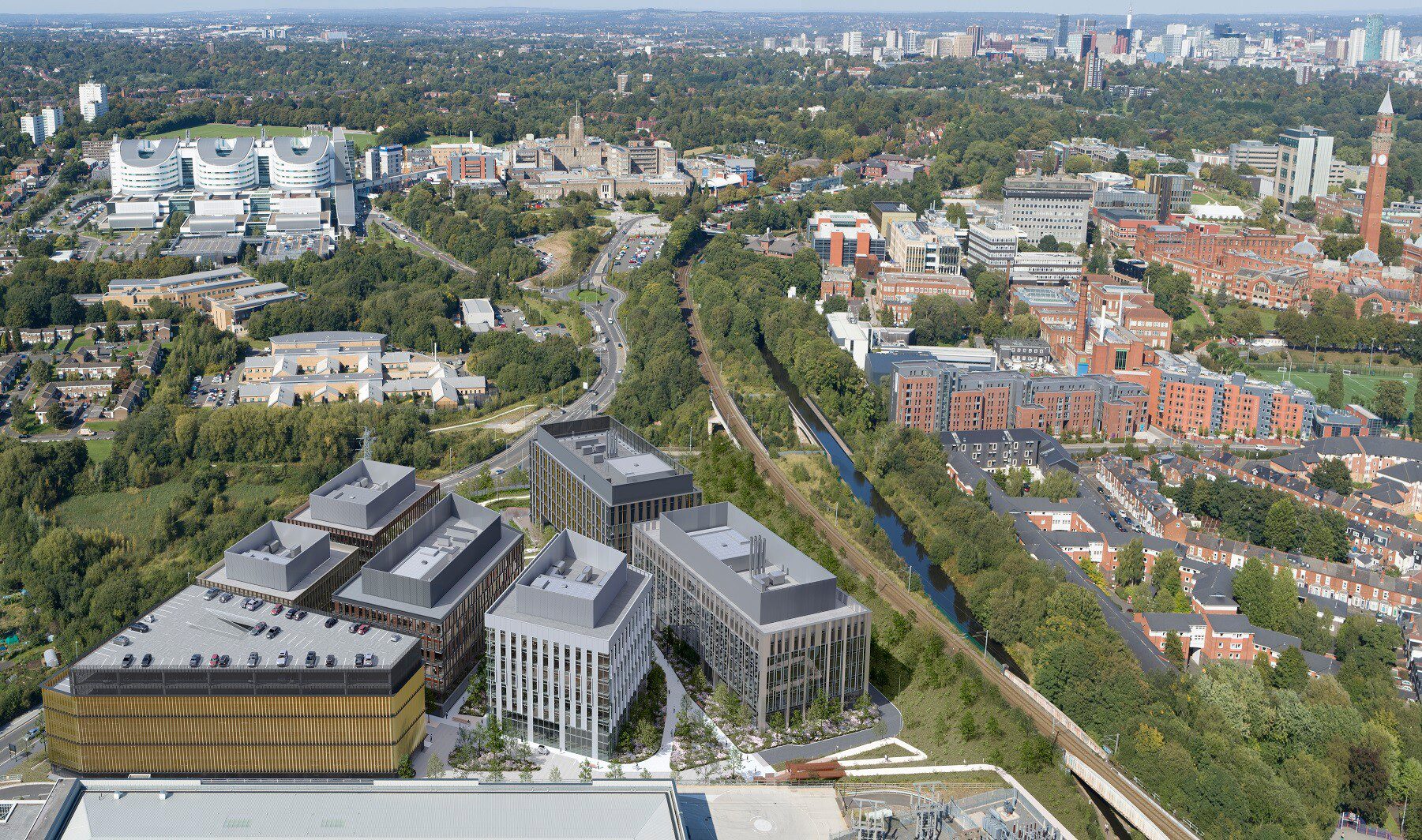
From research labs to real-world impact.
The region’s connected ecosystem, world-class universities, and skilled talent make innovation happen, fast.
From data hubs and clinical research centres to a connected ecosystem, leading universities, and skilled talent. The West Midlands de-risks investment and accelerates innovation.
This is where ideas move faster.
Where science changes lives.
It starts in the West Midlands.
